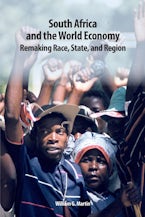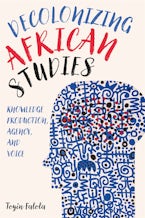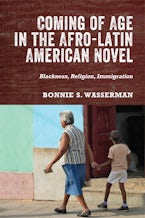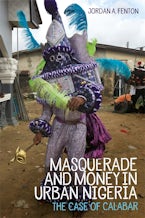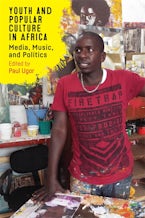
Title Details
160 Pages
22.8 x 15.2 cm
1 b/w illus.
Series: Rochester Studies in African History and the Diaspora
Series Vol. Number:
33
Imprint: University of Rochester Press
Indirect Rule in South Africa
Tradition, Modernity, and the Costuming of Political Power
- Description
- Contents
- Reviews
A groundbreaking new study of the ways in which South African leaders struggle to legitimize themselves through the costuming of political power.
Indirect rule -- the British colonial policy of employing indigenous tribal chiefs as political intermediaries -- has typically been understood by scholars as little more than an expedient solution to imperial personnel shortages.A reexamination of the history of indirect rule in South Africa reveals it to have been much more: an ideological strategy designed to win legitimacy for colonial officials. Indirect rule became the basic template from which segregation and apartheid emerged during the twentieth century and set the stage for a post-apartheid debate over African political identity and "traditional authority" that continues to shape South African politics today.
This new study, based on firsthand field research and archival material only recently made available to scholars, unveils the inner workings of South African segregation. Drawing influence from a range of political theorists including Machiavelli, Marx, Weber, Althusser, and Zizek, Myers develops a groundbreaking understanding of the ways in which leaders struggle to legitimize themselves through the costuming of political power.
J. C. Myers is Associate Professor of Political Science at California State University, Stanislaus.
Indirect rule -- the British colonial policy of employing indigenous tribal chiefs as political intermediaries -- has typically been understood by scholars as little more than an expedient solution to imperial personnel shortages.A reexamination of the history of indirect rule in South Africa reveals it to have been much more: an ideological strategy designed to win legitimacy for colonial officials. Indirect rule became the basic template from which segregation and apartheid emerged during the twentieth century and set the stage for a post-apartheid debate over African political identity and "traditional authority" that continues to shape South African politics today.
This new study, based on firsthand field research and archival material only recently made available to scholars, unveils the inner workings of South African segregation. Drawing influence from a range of political theorists including Machiavelli, Marx, Weber, Althusser, and Zizek, Myers develops a groundbreaking understanding of the ways in which leaders struggle to legitimize themselves through the costuming of political power.
J. C. Myers is Associate Professor of Political Science at California State University, Stanislaus.
Introduction
Indirect Rule
From Native Administration to Separate Development
Proxy Forces
Tradition and Modernity in hte Fall of Apartheid
Chiefs in the New South Africa
Indirect Rule
From Native Administration to Separate Development
Proxy Forces
Tradition and Modernity in hte Fall of Apartheid
Chiefs in the New South Africa
"[Myers] makes the good point that the ongoing debates in South Africa over the roles of traditional rulers is very much conditioned by what has gone on during the past two centuries. Summing up: recommended." CHOICE, April 2009
"This is an important and provocative book. Myers shows why indirect rule developed in South Africa, why it was absorbed by white supremacy, and why it influences South African politics to this day. Theoretically sophisticated, Indirect Rule identifies and explains the central contradiction between the ANC's traditionalist and progressive agendas." Michael MacDonald, Williams College
Paperback
9781580463621
August 2013
$29.95 / £24.99
Ebook (EPDF)
9781580467421
July 2008
£24.99 / $29.95
Title Details
160 Pages
2.28 x 1.52 cm
1 b/w illus.
Series: Rochester Studies in African History and the Diaspora
Series Vol. Number:
33
Imprint: University of Rochester Press



